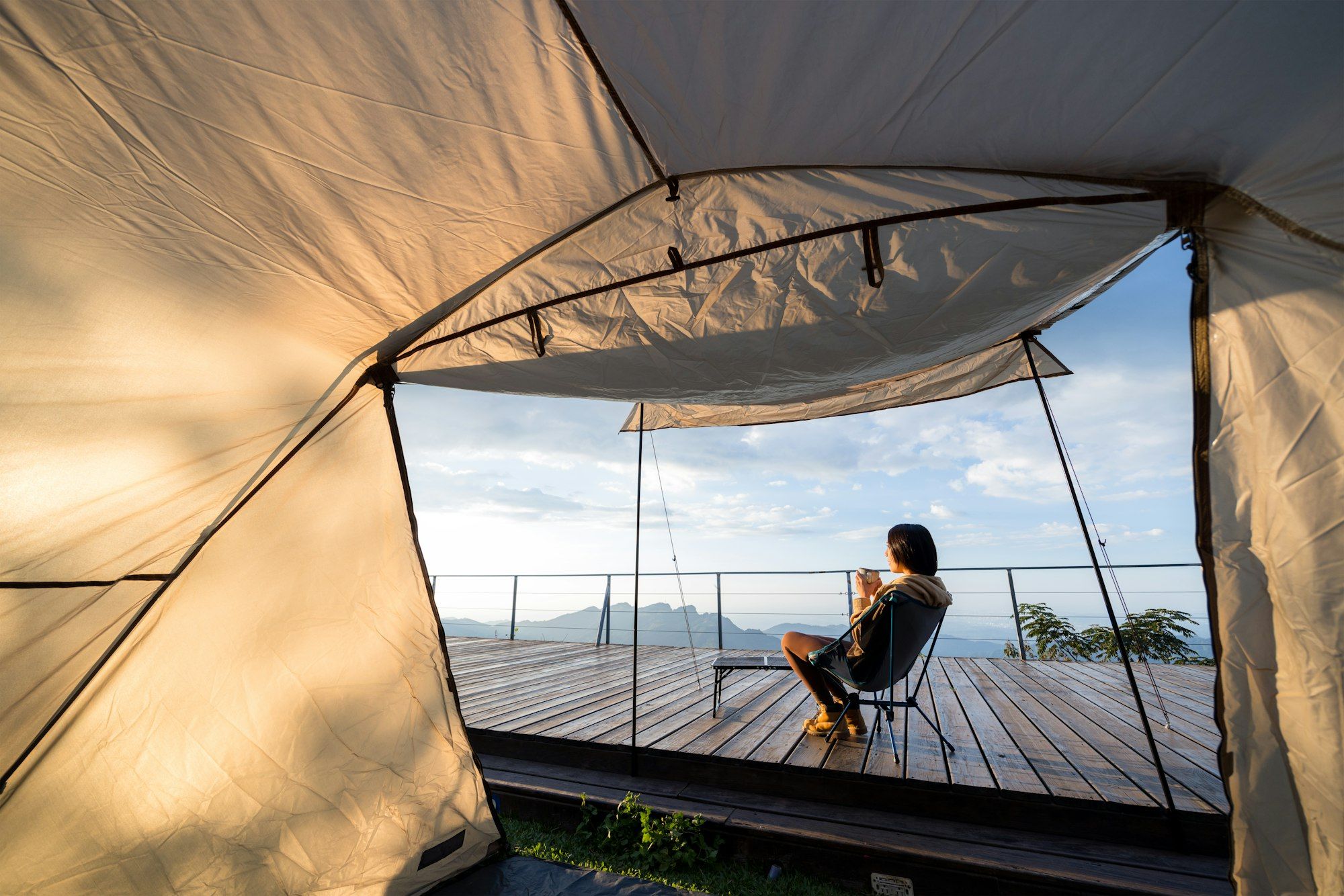Spring welcomes a perfect opportunity for camping in the UK, with blooming landscapes and milder weather inviting outdoor enthusiasts to explore. Preparation is key to a memorable experience. Discover essential tips that enhance enjoyment, from choosing the ideal campsite to packing wisely. Whether you're a seasoned camper or a novice, these expert insights will help you make the most of your spring adventure, ensuring comfort and excitement under the stars. Get ready to create unforgettable memories amidst nature's beauty.
Expert Preparation Techniques for Spring Camping
Spring camping offers a refreshing escape, but proper preparation is crucial for a successful trip. Start by creating an essential gear checklist tailored for spring conditions. Include items such as a weather-appropriate sleeping bag, a reliable tent with a rainfly, and layered clothing to adapt to fluctuating temperatures. It's also wise to pack a first-aid kit, a map or GPS device, and a portable water filter to ensure safety and comfort.
Also to read : Discover the Top UK Campsites for an Unplugged Digital Detox Adventure
Campsite selection plays a pivotal role in your camping experience. Choose a site with natural windbreaks and good drainage to prevent discomfort from spring showers. Additionally, consider the proximity to water sources and trails to enhance convenience and exploration opportunities. Arranging your campsite layout with a focus on safety and functionality can significantly enhance your camping experience.
Effective meal planning is another cornerstone of successful spring camping. Opt for meals that are easy to prepare and require minimal cleanup. Consider using a portable stove or grill for cooking, and plan meals that incorporate lightweight, non-perishable ingredients. This strategy not only simplifies cooking but also reduces the risk of attracting wildlife with food scents. By embracing these spring camping tips, you'll be well-equipped to enjoy the beauty and tranquility of the season.
In parallel : Discover the Top UK Campsites for an Unforgettable Luxury Glamping Getaway
Gear Recommendations for a Comfortable Experience
Choosing the right camping gear can make or break your spring camping adventure. Investing in the right essential equipment ensures comfort and safety.
Tent Selection and Setup
For a comfortable stay, select a tent that offers weather resistance. A tent with a robust rainfly and sealed seams will protect against spring showers. Ensure it has good ventilation to prevent condensation. Set up your tent on level ground with natural windbreaks for added stability and comfort.
Sleeping Gear: Mattresses and Bags
Insulation plays a crucial role in sleeping comfort. Opt for a sleeping bag rated for spring temperatures, ensuring warmth during cold nights. A sleeping pad or inflatable mattress adds insulation from the ground and enhances comfort. Consider the weight and packability of your sleeping gear to balance comfort and convenience.
Cooking Equipment and Utensils
Cooking in the great outdoors requires durable and portable equipment. A lightweight camping stove or portable grill is ideal for meal prep. Choose utensils that are easy to clean and store. Opt for non-stick cookware to simplify cooking and minimize cleanup. This setup allows you to enjoy hassle-free meals, leaving more time to soak in the beauty of spring camping.
Safety Measures for Spring Camping
Ensuring camping safety is essential for a successful outdoor experience. Begin by equipping yourself with a comprehensive first-aid kit. This should include adhesive bandages, antiseptic wipes, pain relievers, and any personal medications. Knowing basic first-aid procedures can be invaluable in handling minor injuries promptly.
When it comes to wildlife safety, understanding local fauna is crucial. In the UK, campers might encounter animals such as foxes, deer, or badgers. Maintain a safe distance and store food securely to prevent attracting unwanted visitors. Use bear-proof containers where necessary, even if bears are not present, as they are effective against other wildlife too.
Fire safety is paramount, especially in wooded areas. Familiarise yourself with local regulations regarding campfires. Always use designated fire pits and keep a bucket of water or a fire extinguisher nearby. Extinguish fires completely before leaving the site or going to sleep. Avoid building fires during dry spells to prevent wildfires.
By prioritising outdoor safety, you enhance your camping experience, allowing you to focus on the beauty and adventure spring camping offers. These measures not only protect you but also preserve the natural environment for future explorers.
Weather Considerations for Spring Camping
Spring camping in the UK requires careful attention to spring weather patterns and camping conditions. Understanding these factors can significantly enhance your outdoor experience.
Understanding UK Spring Weather Patterns
The UK's spring weather is known for its variability. It often includes a mix of sunshine, rain, and wind. Familiarise yourself with local weather forecasts to anticipate these changes. Utilise reliable weather apps or websites to check for updates before and during your trip. This information helps you plan your activities and gear accordingly, ensuring you're prepared for whatever nature throws your way.
Preparing for Rain and Wind
Spring showers and gusty winds are common, so waterproofing is essential. Use seam sealers on your tent and invest in a quality rainfly. For clothing, opt for waterproof jackets and trousers. Consider using a rain cover for your backpack to protect your gear. Wind can also be a challenge; choose campsites with natural windbreaks and secure your tent with sturdy stakes.
Clothing Layers for Variable Conditions
Layering is key to staying comfortable in fluctuating temperatures. Start with a moisture-wicking base layer, add an insulating mid-layer, and finish with a waterproof outer layer. Fabrics like merino wool and synthetic blends are excellent for maintaining warmth and comfort. This approach allows you to adjust your clothing as the weather changes, keeping you comfortable throughout your camping adventure.
Activities to Enhance Your Camping Experience
Spring camping is a perfect opportunity to engage in camping activities that cater to all ages, making it ideal for families. Incorporating a mix of games, exploration, and creativity can transform your trip into an unforgettable adventure.
Popular Games and Activities for Families
Family-friendly ideas like scavenger hunts or nature bingo foster teamwork and excitement. These games encourage children and adults alike to explore their surroundings and learn about the local environment. Frisbee, kite flying, or even a simple game of catch can also be engaging and fun.
Nature Exploration: Hiking and Wildlife Watching
Hiking offers a chance to immerse in nature's beauty while promoting physical activity. Choose trails suitable for all family members, ensuring safety and enjoyment. Wildlife watching can be a captivating experience; bring binoculars and a guidebook to identify local species. This activity not only educates but also instils a sense of wonder and respect for nature.
Crafting and Storytelling Around the Campfire
As the day winds down, crafting and storytelling around the campfire provide relaxation and bonding. Bring materials for simple crafts, like making leaf prints or nature-inspired jewellery. Storytelling, whether sharing personal tales or reading from a book, enriches the camping experience, creating lasting memories.
Enjoying Nature: Mindfulness and Relaxation
Spring camping offers a unique opportunity for nature enjoyment and embracing mindfulness outdoors. Engaging with the natural environment can enhance your camping experience, providing relaxation and a sense of peace.
Practices for Mindful Camping
Incorporating mindfulness practices into your camping routine can deepen your connection with nature. Start your day with a quiet walk, focusing on the sounds and sights around you. Breathing exercises and yoga are excellent ways to ground yourself and appreciate the tranquility of the outdoors. Encourage family discussions about nature, sharing observations and reflections to enhance awareness and appreciation.
Benefits of Disconnecting from Technology
Unplugging from technology allows you to fully immerse in your surroundings. Without the constant buzz of notifications, you can engage more deeply with the natural world. This disconnection fosters relaxation, reduces stress, and enhances mental clarity. It also offers a chance to bond with family and friends, creating meaningful memories without digital distractions.
Scenic Spots for Photography and Reflection
Spring landscapes provide stunning backdrops for photography and reflection. Seek out scenic spots like lakesides or forest clearings to capture beautiful moments. Practice patience and observation to notice subtle changes in light and shadow. These moments of reflection not only produce captivating photographs but also enrich your camping experience.
Navigating Campsite Etiquette
Understanding campsite etiquette is essential for a harmonious outdoor experience. At the heart of this is the Leave No Trace principle, which advocates for minimal impact on the environment. This involves packing out all waste, respecting wildlife, and leaving natural objects as you found them. By adhering to these guidelines, you help preserve the beauty of nature for future campers.
Respect for fellow campers is another crucial aspect of outdoor respect. Maintain a considerate distance between campsites to ensure privacy and minimise disturbances. Keep noise levels low, especially during early mornings and late evenings, to allow others to enjoy the tranquillity of nature. This includes controlling the volume of music and conversations.
When it comes to behaviour at campsites, remember that courtesy goes a long way. Avoid walking through other campers' sites and keep pets under control. Always follow posted rules and regulations, as they are designed to ensure everyone's safety and enjoyment. By following these campsite etiquette guidelines, you contribute to a positive camping experience for yourself and others, fostering a community of respect and appreciation for the great outdoors.
Post-Camping Reflection and Improvement
Reflecting on your camping experience is a valuable step towards experience improvement. By examining what went well and what could be better, you enhance future trips.
Keeping a Camping Journal
Maintaining a camping journal allows you to document your adventures and thoughts. Record details about the campsite, weather conditions, and activities enjoyed. Note any challenges faced and how they were addressed. This practice not only helps preserve memories but also serves as a reference for planning future trips, ensuring continuous growth and improvement.
Evaluating Gear and Experiences
Post-trip, assess the performance of your gear. Did your tent withstand the weather? Were your cooking supplies adequate? Identifying any shortcomings in equipment can guide future purchases. Similarly, evaluate your overall camping experience. Consider aspects like campsite selection, food preparation, and activities. This assessment helps pinpoint areas for enhancement, leading to more enjoyable and efficient camping experiences.
Planning for Future Trips
Use insights from your reflections to plan future camping trips. Apply lessons learned to improve logistics, gear choices, and activity planning. Documenting experiences and gear assessments provides a foundation for better preparation. This proactive approach ensures each camping trip becomes more rewarding, as you build on past experiences and strive for continuous improvement.
Additional Resources and Recommendations
For those eager to delve deeper into the world of camping, there are numerous camping resources available. Books like "The Ultimate Hiker's Gear Guide" by Andrew Skurka offer comprehensive insights into gear selection and outdoor techniques. Websites such as UKCampsite.co.uk provide a wealth of information on campsites and user reviews, making them invaluable for planning your next adventure.
Joining local UK camping groups and communities can enhance your experience. These groups often organise events and share tips, fostering a sense of camaraderie among enthusiasts. Platforms like Meetup and Facebook host various camping groups where you can connect with like-minded individuals and exchange advice.
In the digital age, apps have become essential tools for campers. For navigation, apps like ViewRanger provide detailed maps and GPS capabilities, ensuring you stay on track. To find campsites, the Pitchup app offers an extensive database of locations, complete with reviews and booking options. These apps simplify the planning process, allowing you to focus on enjoying the great outdoors. Embracing these further reading options and technological aids can significantly enrich your camping adventures.











